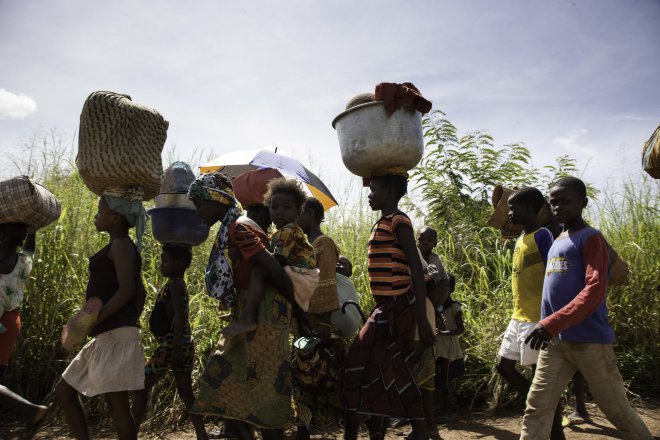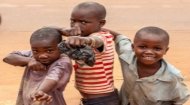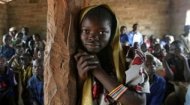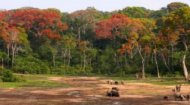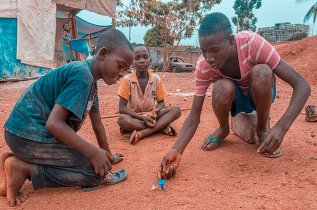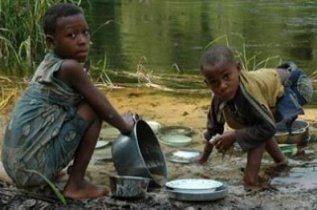|
|
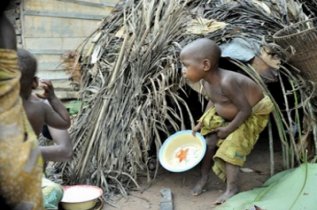
|
Daily Life in CAR |
Daily Life in CAR |
Daily Life in CAR | Daily Life in CAR |
For information, videos and photos of
the Central African Republic check out our CAR profile pages.
More >
|

|
This, coupled with almost non-existent health care services outside the capital city of Bangui, leaves many highly vulnerable to waterborne diseases such as schistosomiasis, bacterial and protozoal diarrhoea, hepatitis A, and typhoid fever. The conflict, particularly in the north of the country, makes getting clean water to those hiding out in the forests even more of a challenge as as rebels groups attack villages, forcing their occupants into the bush for safety. It is not uncommon for women and their children, some as young as six, to have to walk two hours to fetch water in bowls and then make the same journey back again. Where there are wells with pumps, these often lay broken and spare parts are no longer available. The situation is often compounded by lack of knowledge about hygiene with chickens and goats often sharing bowls of water with humans and their waste draining back into the available water supplies. Hygiene awareness programs are undertaken as water supplies are made available, often just by fixing what is already there, and efforts made to ensure the locals keep the repaired supplies safe. It is estimated that the number of displaced persons in the Central African Republic is currently 669,791 (2021) and these adults and children are at particular risk of trafficking in a country already well known as a source, transit, and destination for human trafficking particularly children who are sold for sexual exploitation, domestic servitude, street vending, and forced agricultural, mine, market and restaurant labour. Other children from the Central African Republic are sold abroad to Cameroon, Nigeria, and the Democratic Republic of Congo. Roles are very traditional in the Central African Republic with women being responsible for the household and gathering of food whilst males fish and hunt and subsistence farm where they haven't been driven from their land. Meals are prepared around staple foods such as okra, cassava, rice, pumpkins, and plantains and, when available served with fish or meat. In a society comprised of 35% indigenous beliefs, 25% Protestant, 25% Roman Catholic and 15% Muslim, church plays an important role outside formal services as they organise many activities and support groups for all age groups including, of course, football. Important dates include March 29th, the death of former president Boganda, May 1st Labour day and of course Republic day on 13th August to celebrate independence from France. The Central African Republic is in 191th place out of 191 countries and territories in 2021 in terms of life expectancy, literacy, access to knowledge and the living standards of a country leaving it far short of even sub-Saharan standards. The video documentary explores life for many of those living in the north of the Central African Republic and the challenges they face to survive. |
